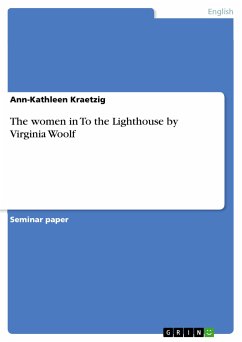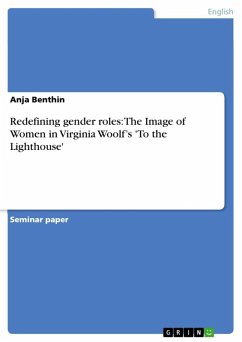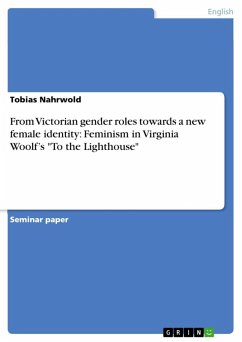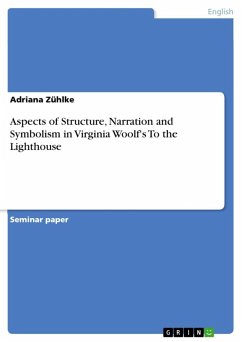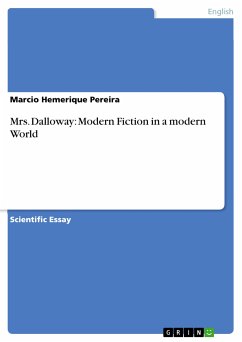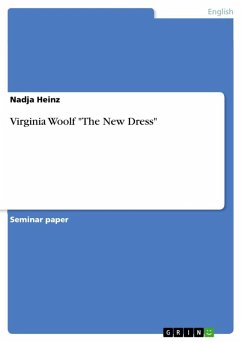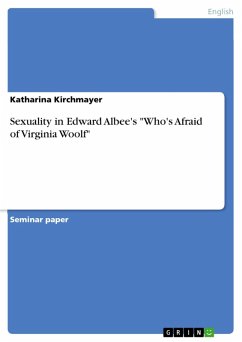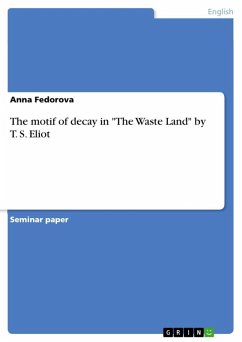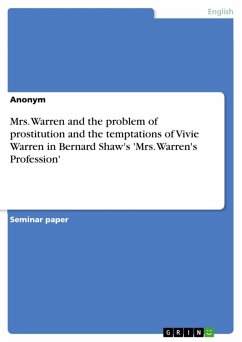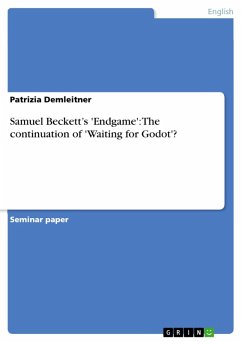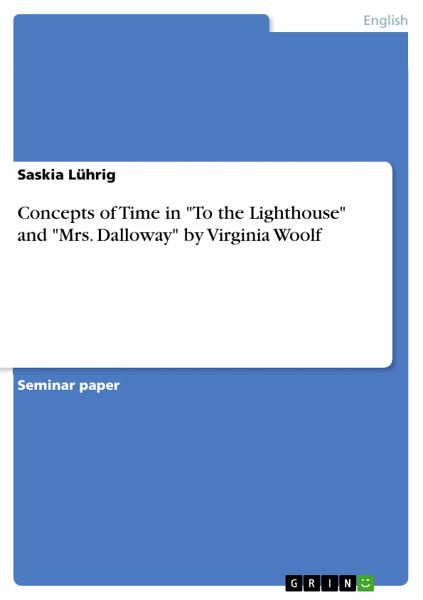
Concepts of Time in "To the Lighthouse" and "Mrs. Dalloway" by Virginia Woolf (eBook, ePUB)
Sofort per Download lieferbar
15,99 €
inkl. MwSt.

PAYBACK Punkte
0 °P sammeln!
Seminar paper from the year 2006 in the subject English Language and Literature Studies - Literature, grade: 1,0, University of Cologne, course: Waste Lands: Experience of Modernism , language: English, abstract: Virginia Woolf is regarded as one of the great writers in modern fiction. She wrote innovative pieces of fiction for she used the stream-of-consciousness and experimented with different point of views. Furthermore, the treatment of time is an important issue in her fiction as she broke with the traditional chronological narration. This paper will discuss Virginia Woolf's concepts of t...
Seminar paper from the year 2006 in the subject English Language and Literature Studies - Literature, grade: 1,0, University of Cologne, course: Waste Lands: Experience of Modernism , language: English, abstract: Virginia Woolf is regarded as one of the great writers in modern fiction. She wrote innovative pieces of fiction for she used the stream-of-consciousness and experimented with different point of views. Furthermore, the treatment of time is an important issue in her fiction as she broke with the traditional chronological narration. This paper will discuss Virginia Woolf's concepts of time theoretically and in her novels Mrs Dalloway and To the Lighthouse. First of all, it is necessary to understand that time itself is and has always been a problematic concept which has been subject to philosophical discussion. People have been obsessed with control and domination of time. They measure it and create linear segments, such as days, minutes and seconds. In Modernism, new concepts of time came up and especially the concepts of time by Henri Bergson influenced the writers of Modernism. Woolf as a modern writer and critic was strongly influenced by these new concepts. This can be seen in her experimental fiction and her usage of time in her novels. Therefore, a brief outline of the main characteristics of Modernism will be given to understand the context in which the discussion is embedded. Furthermore, Henri Bergson's concepts of time will be presented briefly as they have been the most influential in modern fiction. Finally, Woolf's own theoretical concepts of time will be explained. She concentrated especially on the distinction between moments of being and non-being which will be defined. In the following, it will be examined how she applied these concepts of time in two of her novels. Mrs Dalloway, published in 1925, and To the Lighthouse, written and published after Mrs Dalloway in 1927, will be analysed with a special focus on the treatment of time. It will be examined how time influences the structures of the novels and how its dimensions, past and present, are treated. Especially past times effecting present situation and present moments evoking past memories are of importance. Furthermore, this paper will identify moments of being in the novels and analyse how they are perceived in respect to time. Finally, the treatment of time in the two novels will be compared. It will be examined if there is a development in her concepts and if so, the changes will be highlighted.
Dieser Download kann aus rechtlichen Gründen nur mit Rechnungsadresse in A, B, BG, CY, CZ, D, DK, EW, E, FIN, F, GR, HR, H, IRL, I, LT, L, LR, M, NL, PL, P, R, S, SLO, SK ausgeliefert werden.




